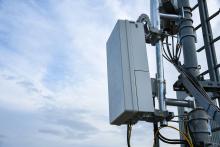McNealy said Sun is also expanding its service offerings by launching the Network Equipment Provider (NEP) Lifecycle Services Program. The set of service offerings would be offered with systems integrator partners in the telecommunications industry, including Pinnacle Data Systems.
Cisco's Chambers made no major announcements during his CTIA keynote, and he barely mentioned Cisco's $39 million cash bid to acquire Riverhead Networks, which was announced Monday. The Cupertino, Calif.-based company develops security technology aimed at protecting against distributed denial-of-service (DDOS) attacks and other security threats in enterprise and service provider networks.
Chambers focused his comments on Cisco's approach to IP mobility. "I think we're still thinking too conservatively about what mobility and wireless means to our future," he told CTIA attendees. The future means a seamless integration of applications, including voice and data, but Cisco and other market players must think more about how this architecture is going to come together and how people are going to use it, he said.
Networks will evolve from separate, proprietary platforms to a more common standards-based approach that eventually will focus on changing vertical business processes to meet the benefits of new wireless technologies, Chambers said. "Productivity only changes if you change processes," he said.
FCC chief Powell, meanwhile, described the wireless business sector's future as bright. So far, the wireless market has fostered a competitive environment, with players working to resolve issues with as little government intervention as possible, he said.








